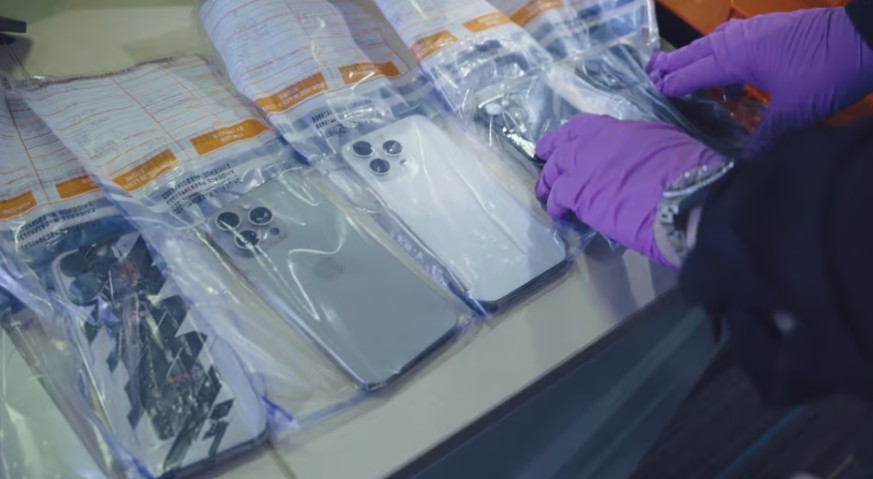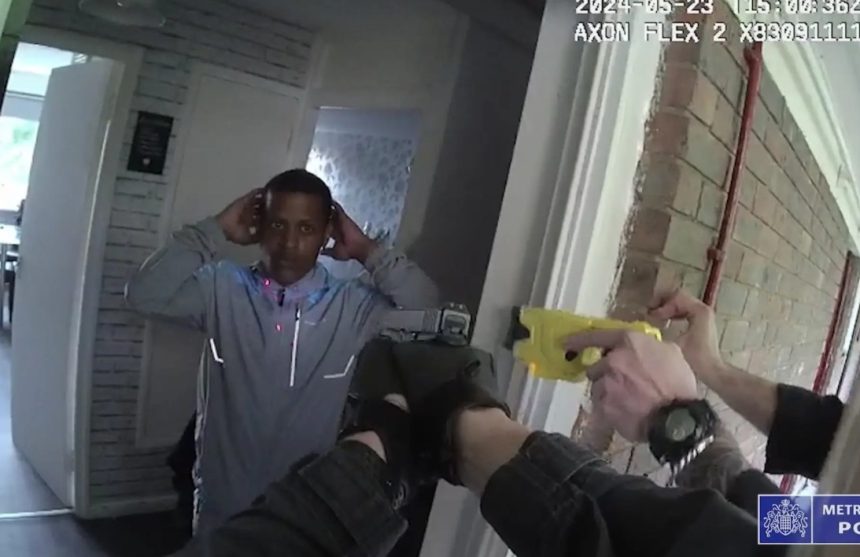Metropolitan Police Crack Down on London Smartphone Smuggling Ring
Investigators have disassembled a major felonious network believed to be behind the smuggling of thousands of stolen smartphones from London to China.
The Metropolitan Police revealed that the gang may have exported up to 40 percent of all phones stolen in the capital over time.
The disquisition, known as Operation Echosteep, began in December 2024 after officers discovered a payload containing roughly 1,000 iPhones at a storehouse near Heathrow Airport. Police verified that nearly all the biases were stolen.
From that discovery, investigators interdicted fresh shipments and used forensic substantiation on the packages to identify suspects.
A man was charged with handling stolen goods after being stopped at Heathrow with 10 suspected stolen phones on 20 September.
Investigators later found that he’d travelled further than 200 times between London and Algeria over two times.
Two other men in their 30s were arrested three days later in north-east London on suspicion of handling stolen goods.
Officers recovered phones from their auto, while an farther 2,000 bias were seized from parcels linked to them. They’ve been charged and remanded in guardianship.
A separate brace of men, also in their 30s, were arrested on 25 September on suspicion of money laundering and handling stolen goods, following a cash seizure of around£ 40,000 at a phone shop on Seven Sisters Road, Islington.
Stolen bias was also sequestered, and the men have been bailed pending further investigation.
Across a two-week operation, police made 46 apprehensions, including 11 targeting gangs stealing delivery vans carrying the new iPhone 17.
An additional 15 people were detained in the last week for theft, handling stolen goods, and conspiracy. Searches of 28 properties in London and Hertfordshire recovered over 30 suspected devices.
London Mayor Sir Sadiq Khan praised the Met for their efforts. “This is, without doubt, the largest operation of its kind in UK history, and it was humbling to see first-hand how the Met is going after the leaders of international smuggling gangs as well as the street robbers and snatchers fuelling this industrial-scale crime,” he said.
“Thanks to our record funding, the Met is boosting visible neighbourhood policing across London and deploying specialist operations in hotspot areas like Westminster and the West End, where nearly 40% of phone thefts occur.
This crackdown has already led to hundreds of arrests and thousands of handsets seized, contributing to a 13% drop in theft and robbery across London in the first quarter of this year.”

Sir Sadiq also urged the mobile phone industry to act. “Criminals are making millions by repurposing stolen phones and selling them abroad, with many still able to access cloud services.
It’s simply too easy and too profitable. I will continue to call on the mobile phone industry to go harder and faster in designing out this crime by making stolen devices unusable.
We need coordinated global action to shut down this trade and build a safer London for everyone.”
Detective Inspector Mark Gavin, leading Operation Echosteep, highlighted the human impact of the crimes.
“Finding the original shipment of phones was the starting point for an investigation which uncovered an international smuggling gang, which we believe could have been responsible for exporting up to 40% of all the phones stolen in London.
Behind every one of those phones is a victim. People keep their lives on their phones, and it can be heartbreaking when they’re stolen.
We heard from people who had lost photos of deceased relatives and others who were violently assaulted during robberies.”
He added that Apple devices were specifically targeted because of their high resale value abroad, with thieves earning up to £300 per handset, while stolen phones could sell for as much as $5,000 (£3,711) in China.
Commander Andrew Featherstone, the Met’s lead on phone theft, emphasised the scale of the operation.
“This is the largest crackdown on mobile phone theft and robbery in the UK in the most extraordinary set of operations of this kind that the Metropolitan Police has ever undertaken.
We’ve dismantled criminal networks at every level, from street-level thieves to international organised crime groups exporting tens of thousands of stolen devices each year.
Londoners deserve to feel safe, and this is a clear sign of the Met’s commitment to protecting them and driving down crime.”
He urged phone manufacturers such as Apple and Samsung to support law enforcement in securing devices and preventing the resale of stolen phones.
Crime and Policing Minister Sarah Jones praised the operation. “If you’re involved in phone theft, be it on the streets, behind shop counters, or part of an organised crime gang, we’re coming after you.
I want to see more of these large-scale interventions, which is why we’re putting more police on the streets and arming them with stronger powers to track down the criminals responsible and make our streets safer.”
This case underscores a rising trend of smartphone smuggling in London and other global cities, with around 80,000 devices reported stolen in the capital last year.






